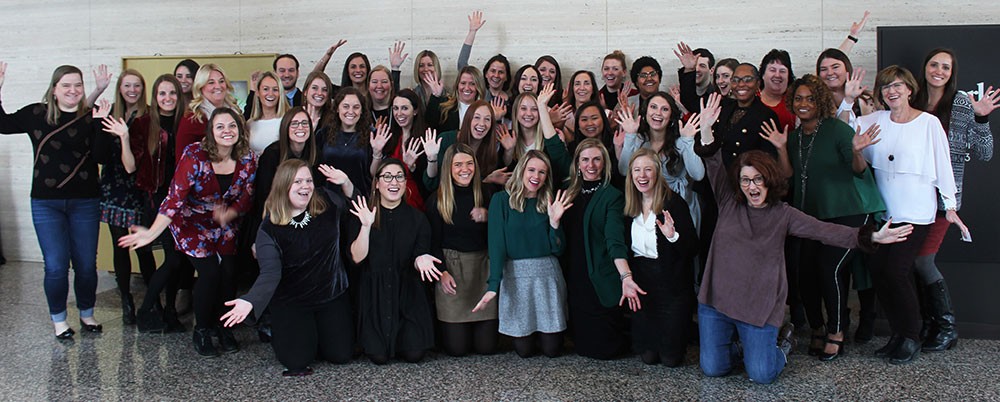To honor International Women’s Day 2019, Meetings Today reached out to one of the legacy companies in the meetings and events industry, 70-year-old association management firm SmithBucklin, to ask some of their key female executives to reveal their secrets for success in a high-stress industry, and how they balance a demanding career with their personal life.
After getting the answers back from them, one of the most revealing aspects was that apart from sharing some very important advice for their female colleagues, these execs really offered so many general insights about the meetings industry and methods for coping in such a stressful environment. Their words of wisdom are something that anyone, of any gender, can obtain great reward from reading.
Carol McGury, Executive Vice President,
Events and Education Services, SmithBucklin
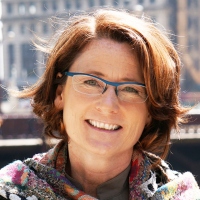
1. How many years have you worked in the events industry and how have you seen women’s roles evolve?
Of my 30-plus years serving associations as an executive director or as the lead of our event and education services (for the last six years), I’ve been privileged to both have a seat at the table and be surrounded by strong females in leadership roles. I have proudly watched the evolution of the events industry and its significant impact on the global economy. Throughout, the voice of female leadership continues to be amplified.
There are now more female CEOs, female leaders leading key industry organizations and an overall focus and emphasis on women and leadership—this is all good!
2. What piece of advice on work/life balance would you give women in this industry?
We work in a fast-paced and, at times, stressful environment. It’s the nature of working in a dynamic industry. Its effect on you depends on how you manage the work/life balance.
Be sure to make time for yourself. Treat the care of yourself like it’s a business decision and devote the necessary thought, time, energy and money accordingly.
One last tip: Invest in really good shoes. This will help you years down the road.
3. What has been the biggest challenge you faced during your career journey? What is a memorable success or win on the job?
It’s not so much of a challenge as it is a mindset shift: remembering that what I do and how I work with my teams makes a lasting impact both on them and the client organizations we serve. I’ve always been one to lead by example, and one way I do is to challenge myself to think beyond my current capabilities. My colleagues (both current and former) feel inspired to challenge themselves similarly and they say it’s helped them grow in their careers.
This is also the most successful thing I can do—set others up for future success.
4. How do you keep energized and engaged in the industry?
As chair of PCMA’s Education Foundation and being part of the PCMA Board of Directors, I’m surrounded by energy and uber-smart people. This group challenges each other to think strategically about the industry and raises the bar on how we can support its evolution.
I also work with an amazing team of over 100 event and education professionals who continually bring new and different thinking to our client organizations.
[Meetings Today Blog: International Women's Day (Moving the Industry Forward)]
Additionally, I'm inspired by the thought leadership of my colleagues Don Neal (360 Live Media blog) and Beth Surmont (Otter Talk blog), our amazing industry partners, and the robust ecosystem of industry insights in this community.
5. What do you know now that you wish you knew when you first began your career in this industry?
I wish I had known the incredible difference I could make not only to the client organizations we serve, but to individual stakeholders who attend the events we produce.
I talk about this with our team—we are making a difference in so many ways, whether it’s enabling someone to have an amazing event experience, providing a forum where people can learn and grow to benefit their profession, or helping a client organization achieve record growth whereby they can reinvest some of the profits in the community.
We build communities and create memorable experiences—the value is priceless.
And one other thing I wish I knew—remember what I said about investing in good shoes?
Buffy Levy, Events Director, SmithBucklin
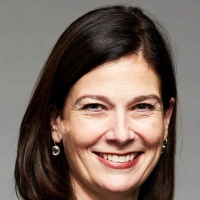
1. How many years have you worked in the events industry and how have you seen women’s roles evolve?
I’ve been in the industry for 27 years—all at SmithBucklin. The events industry has always been dominated by women, and because of that we’ve always had significant leadership roles and positions. And because we haven’t had to contend with gender disparity issues to the extent other industries have, I think this has enabled us to focus more on the business and our clients.
2. What piece of advice on work/life balance would you give women in this industry?
My advice is to start off by setting the right expectations with your clients and colleagues. Understand their expectations of you and communicate yours with them. By establishing boundaries that are reasonable, I find there’s more respect for my personal time. They also know that when it’s critical (a realistic sense of urgency), I’ll respond immediately.
One other piece of advice: Early mornings are the most effective time of day. I typically come into the office extra early and get work done. It’s also a great time to handle administrative needs, too, including a couple personal ones. By getting work done early, I can be more attentive to my clients and my team during normal business hours and then leave the office at a reasonable time to spend time with my family—or do some knitting.
3. What has been the biggest challenge you faced during your career journey? What is a memorable success or win on the job?
My biggest challenge in my career journey was mostly in my own head—a perceived notion I had years ago that I had leveled off in the advancement of my career. I felt there was more to come, but it wasn’t happening as fast as I expected. I kept comparing my career to others, but the real issue was I needed to manage my own expectations.
When I learned to keep focused on my work and what I’m doing—and not what everyone else is doing—promotions started coming my way, even one that I hadn’t expected. I often give this advice to my colleagues: Focus on you and your work and do it well—the rewards will follow.
[Related Content: Positive Impact Asks #EventProfs to Share Stories of Female Peers]
Any time I finish a show, I have that big feeling of accomplishment. But perhaps the biggest was the first time I completed The NAFEM Show (a biennial trade show of the North American Association of Food Equipment Manufacturers) as show director.
I remember I had just taken over as director and I was nervous. The show ended up being hugely successful and I was so proud of the team and what we achieved. I learned I just need the confidence that I can do it, and if I hit a road block along the way, I can always ask for help.
4. How do you keep energized and engaged in the industry?
When I interview prospective new hires for entry level positions, I am always energized by the many wonderful, amazing candidates I meet. They are just entering the industry and are filled with new ideas and passion for events. I then continue to be energized by them as I mentor and coach them when they come on board. That’s what I love about my work.
I stay engaged with the industry through my service to industry organizations. I serve on the board of the International Association of Exhibitions and Events (IAEE), and I serve as their board liaison to the Young Professionals Committee. I also serve on several industry-related advisory boards. I regularly attend IAEE meetings, where I get the chance to connect with so many of the people I’ve met or worked with during my many years in this industry.
5. What do you know now that you wish you knew when you first began your career in this industry?
Any problem can be solved. Don’t panic. At our company, there is likely someone who has experienced a similar issue or crisis, so you can easily find advice or feedback. And people in the industry are really supportive. As a member of IAEE or PCMA, you have a network of people who can offer great advice, too. There’s no problem you can’t solve. You may not get the exact outcome you wanted, but you can come close. I think that’s a really important life lesson too.
Beth Surmont, CAE, CMP,
Director of Experience Design,
360 Live Media (part of the SmithBucklin family)
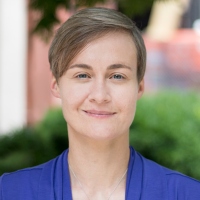
1. How many years have you worked in the events industry and how have you seen women’s roles evolve?
I’ve been in the professional planning business for 19 years. I’ve mainly worked for associations, and have been fortunate to experience a lot of female leadership. I think associations skew toward more female staff in general.
I’ve seen two areas involving women that have evolved.
The first is the emphasis on ensuring diversity in speakers.
It’s only been in the past five years or so that I have seen a big focus on making sure that the speaker lineup includes both men and women (and non-white people, too). I would not say that it is commonplace just yet, but I do think that the awareness has been heightened.
[Related Content: MPI Launches First-Ever Women's Advisory Board]
The other place is with codes of conduct and safety of women, especially while working events. I can remember being harassed with suggestive comments by attendees, other staff and vendors while working a registration desk. That is no longer the current climate.
Expectations for what is acceptable have definitely changed.
2. What piece of advice on work/life balance would you give women in this industry?
You need to accept that you can’t do it all—and no one can.
Sometimes work will come first and sometimes life will come first. Especially with the amount of travel in our industry, it is easy to feel out of balance. I think the key is to just pay attention to how you are setting your priorities and make sure your choices are in line with both your conscience and your heart, and you aren’t too heavily focused on one side or the other.
3. What has been the biggest challenge you faced during your career journey? What is a memorable success or win on the job?
Event planning is built on challenges, so it is really hard to pick just one. From a career standpoint, I think that the biggest challenge I faced was when I was promoted and charged with creating a new events group for IEEE. I started from scratch and had to teach myself about event design and create best practices as I went along. I had a lot of wins with producing new things, like a women in tech event and a repeated series of content at SXSW. Those skills I built led me to my current job as Director of Experience Design for 360 Live Media.
4. How do you keep energized and engaged in the industry?
You definitely get out of it what you put into it, so I try to make sure I’m contributing and seeking opportunities and information. I read the major daily newsletters. I take as many online trainings as I can.
I attend conferences that will give me new ideas. I am a member of ASAE and I volunteer for ASAE. I also contribute a lot of content through our Otter Talk blog, reports and speaking opportunities.
5. What do you know now that you wish you knew when you first began your career in this industry?
It took me about 10 years to realize the power and potential of events. Meetings are more than just tables, screens and coffee cups. They are opportunities to bring people together to create solutions, invent new possibilities, and make real impact on the world.
When I started thinking about my events like this, it changed my thinking from logistics and order-taking to transformative and human-centered design.
Alexa Newman, Events Director, SmithBucklin
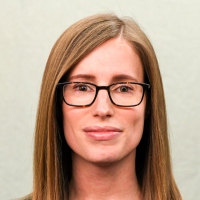
1. How many years have you worked in the events industry and how have you seen women’s roles evolve?
I have had the pleasure of being a part of the events industry for over 16 years. During my career, women have always been integral to the foundation of the events industry. The evolution I have observed in recent years has been a renewal of confidence.
Women are standing up for themselves more, asking for what they want, speaking their minds more freely and questioning things they would have never questioned in the past.
This heightened sensitivity allows for truer, stronger and better results and decision-making, and we need this now more than ever.
2. What piece of advice on work/life balance would you give women in this industry?
Events will always be a lot of work. And a lot of it is unpredictable work in terms of the ebbs and flows and the constant need for contingency plans. My advice is to find a bit of joy in everything you do and do your part to create a culture that is also fun.
Work can be hard and fun at the same time, so inject as much of the latter into your days, your meetings and your events. Also, I recommend completely disconnecting during one vacation a year. Your sanity (and future self) will thank you.
3. What has been the biggest challenge you faced during your career journey? What is a memorable success or win on the job?
Time. There is never enough of it, and there never will be, so the challenge has been coming to terms with this reality. Here are a few tactics I use:
- Thinking up creative ways to best use the time I have.
- Working more efficiently.
- Focusing on prioritization.
- Saying “no” to things that will not serve me, my teams’ or my clients’ successes.
The most memorable success for me is celebrating my team’s successes. I take great pride in mentoring my teams with a focus on growing future leaders. Being a part of a successful team that I have helped coach along the way gives me the greatest joy.
4. How do you keep energized and engaged in the industry?
I surround myself with bright, positive and passionate people.
[Related Content: How to Get the Most Out of Your Mentor]
Whether I am hiring our next planner or networking at an event, I enjoy participating in interesting conversations and learning something new.
5. What do you know now that you wish you knew when you first began your career in this industry?
So many things come to mind, so I will list a few:
- You cannot control what others are going to do or say; the only thing you can control is how you respond to a situation. This is such an empowering notion and has really helped me remove much of the unnecessary angst that can come with our role.
- Nothing worth having comes easy. If it’s easy, you won’t appreciate it as much. The things you work hardest for are the things that you value the most.
- My best work is a result of getting out of my comfort zone.
Sara Kolovitz, Senior Manager of Exhibit Sales
& Sponsorships, SmithBucklin
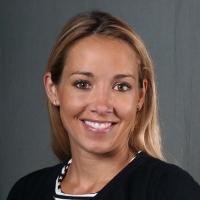
1. How many years have you worked in the events industry and how have you seen women’s roles evolve?
I have been working in this industry for over 15 years, and I have seen the number of female executives continue to increase. We are now connecting, engaging and building relationships with more women leaders—across many industries.
I am fortunate that SmithBucklin’s culture encourages women in leadership roles and provides an environment where we can succeed. I am very proud of the number of women colleagues that have experienced this journey with me in the advancement of our careers. Overall, I believe that greater diversity results in broader perspectives and better outcomes.
2. What piece of advice on work/life balance would you give women in this industry?
Being a wife, a mother of four and a senior sales executive, life can be fast-paced and somewhat unpredictable. I am a big believer in self-care, and I have made things like reading and exercising a priority in my life. To be a strong successful professional, you need to take time to focus on yourself. Self-care goes a long way toward bringing balance to your life, and I have found that I am a happier, more productive and positive person.
In the events industry, the day is not 9 to 5—we often work during the evening or on weekends. When the button is always ON for those around you, prioritizing and bringing balance between work and personal life is so important. You need to carve out time so you can recharge, and find ways to take care of your physical, mental and emotional health.
My outlook is that it is not selfish to devote time to oneself; it makes YOU a better YOU—both professionally and personally.
[Related Content: Nova Browning Rutherford Gets Real About Self-Care]
One of my biggest life lessons was just after my twins were born. I realized that I did not know how to be okay with asking for help despite having a support network that was willing to be there for me. I learned to be comfortable with accepting support at work and at home.
Accepting help from those around you is not a sign of weakness; I really think it demonstrates self-confidence and a practical realization.
3. What has been the biggest challenge you faced during your career journey? What is a memorable success or win on the job?
This is not so much a challenge but an awareness that needs to be continually navigated: communication across professionals at various levels.
Yes, this presents opportunities for sharing knowledge and experiences, but it can be challenging to communicate with others that may have a vastly different work culture, communication preference, core values, work ethic, etc. Misunderstandings can arise from differing mindsets and communication styles. Understanding communication strategies across different audiences is vital for events and programs to run successfully.
With a wide spectrum of stakeholders and team contributors, I adapt my business communication to meet the needs and expectations of the individual(s) to create a positive environment.
What is memorable to me is the success of those I mentor, celebrating their growth and achievements. When I think about wins on the job, I instantly think of those I supervise and their career paths. Supporting their individual momentum, development and positive results.
Nothing is more exciting or satisfying than being instrumental in the success of others and witnessing first-hand their excellent work. I had many mentors in my career and I'm happy to be able to "pay it forward" to the next generation.
5. How do you keep energized and engaged in the industry?
It is hard not to be energized when every day is different and brings with it new challenges and rewards. When you feel valued, it makes what you do worthwhile. The relationships you form, and what we do for associations, makes a significant impact on people.
This is a very fulfilling and passionate industry. It is easy for me to be energized and high energy is part of my DNA, but I do remind myself to be grateful. It is a privilege to provide the services we do, and I focus on the good work the teams I work with are providing daily.
6. What do you know now that you wish you knew when you first began your career in this industry?
That there is always a solution. There is no perfect event; that’s inevitable when there is human involvement. There are things that are going to go wrong and we can fix them. Mistakes happen so do not worry so much.
I like to promote a culture where the fear of mistakes is not prevalent.
I encourage my teams to acknowledge and understand what went wrong and to implement these learning processes to improve their future performances. I like the idea of treating mistakes as opportunities to learn.
Also, I wish I had known early on how important it is to provide a logical point of view to those around you. No one has all of the answers.
Teams succeed because of teamwork, not “me-work.” Leaders need to know what the people on the front lines are facing and where there are opportunities to better understand what is happening with the business and make more informed decisions.
Mary Smith, Events Director, SmithBucklin
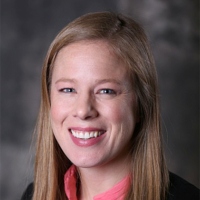
1. How many years have you worked in the events industry and how have you seen women’s roles evolve?
I’ve been in the industry for 15 years and have seen a noticeable increase in the number of women in leadership positions, especially on volunteer boards of the associations we serve. I’ve also noticed a greater focus on individual’s flexibility.
It’s not a one-size-fits-all work environment anymore, affording women opportunities to make it easier to stay in the industry, have families and still grow their careers.
2. What piece of advice on work/life balance would you give women in this industry?
Work/life balance and flexibility looks and feels different for everyone.
My advice for women in the industry is to find what it is that makes you feel balanced. Then ask for it and personally commit to sticking to it.
[Related Content: Cvent Director of Meetings Shares What Inspires Her]
Hold yourself accountable to the boundaries you have set up that work for you.
And as a leader, ask specifically what work/life balance means to the people you manage and help them achieve it. Don’t assume you know what your team does or does not want.
3. What has been the biggest challenges you faced during your career journey? What is a memorable success or win on the job?
A challenge I have faced has been to find time to take advantage of all this industry has to offer. We are incredibly fortunate to have a wide range of education, events and networking at our fingertips, and almost every day! I want to do it all. It’s important to plan strategically to make the most of these opportunities so I can continue to grow and learn. The most memorable successes I have are all about the people I’ve been able to mentor and teach I feel tremendous fulfillment in watching others grow and be successful in their own career journeys.
4. How do you keep energized and engaged in the industry?
Being surrounded by like-minded individuals who share the same passion, drive and commitment for success is energizing. I also find so much engagement in the connections to the clients we serve. All of the work we do touches individuals in so many different ways.
At every event, there are people of all different backgrounds and experiences coming together with a purpose and the power of what that group can accomplish on behalf of an industry. It’s amazing! Taking time to find these stories and capture the differences we are making in people’s lives makes the hard work pay off and puts a lot of the daily “grind” into perspective.
5. What do you know now that you wish you knew when you first began your career in this industry?
I have learned over time and as I have grown into leadership positions that being flexible is really important. Your ability to assess a situation and react appropriately to ensure a positive outcome may mean giving something up or doing something differently than how you’d prefer to do it. However, flexibility goes a long way to managing through a challenging customer service situation, developing customer relationships and retaining top talent.
Based in Chicago and Washington, D.C., SmithBucklin was founded in 1949.
SmithBucklin provides association management and services that range from event strategy and management to exhibit and sponsorship sales.
The primary clients of the 100 percent employee-owned company include trade associations, professional societies, technology communities, charitable organizations and corporations.
[Read This Next: 6 Marriott Women Execs Share Their Secrets to Success]



